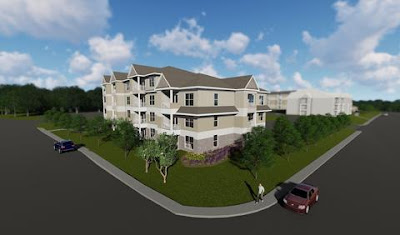New Affordable Housing Lottery
Minimum Income (and Assets)
Per the Leasing Office’s policy that is also in place for market-rate apartments, the rent to income ratio required to lease a unit is 40% (i.e. applicant’s monthly income must be approximately 2.5 times the monthly rent). Applicants may make less than the minimum incomes shown below if they have sufficient savings from which they can draw down otherwise, applicants will not be found to be eligible for a lease if they make less than the incomes shown below. Applicants who have receive a housing subsidy (like Section 8) are not subject to the minimum income requirements but, like all other applicants, will also have to pass reviews on credit scores, tenant history, and criminal background checks in accordance with DHCD’s requirements regarding same. Please see “Leasing Office Review” in the step-by-step process for more details. Again, these minimum incomes are not required by the affordable housing program, they are just estimations of minimum incomes required by the leasing office.
Unit Size Approximate Minimum Income (plus assets) required for households without a housing subsidy
Studio $49,980
1 BR $56,430
2 BR $63,990
Q: How is a household’s income determined?
A: A household’s income is the total anticipated amount of money received by ALL members of the household over the next 12 months (starting from the date of application and projecting forward 12 months) based on their current income and assets. In an effort to provide as accurate an income estimation as possible, the Lottery Agent will also review historical income data to provide a basis for future income estimates. Any monies you anticipate receiving in the next 12 months will be counted as income and monies received over the previous 12 months will be analyzed to help estimate future income. This includes, but is not limited to, Social Security, alimony, child support, overtime pay, bonuses, unemployment, severance pay, part-time employment, matured bonds, monies to be received in court settlements, and actual or imputed interest and dividends on bank accounts and other assets. ALL SOURCES OF INCOME ARE COUNTED with the exception of income from employment for household members under the age of 18 and any income over $480/year for full time students who are dependents (but note that all such income must still be documented even if it is exempt from the household income calculation).
It will be assumed that all applicants will continue to receive any monies they have received over the past 12 months unless supporting documentation proves otherwise. It is also not up to the household to determine what monies received over the past year should and should not be counted as their calculated income. Therefore, all monies should be listed on the application and the inclusion of these monies in determining a household’s eligibility will be based on affordable housing guidelines.
Allowable Assets
There is no asset limit for applying households for this development. However, the higher of the actual income earned from assets, or the imputed income of 0.06% of all assets, will be counted as income. Household Assets are calculated at the time of application. Assets may include cash, cash in savings and checking accounts, net cash value of stocks, net cash value of retirement accounts (such as 401k), real property, bonds, and capital investments.
If any household member currently owns property, the total amount of equity in the home shall be added to their total value of assets.
Example: A household has $8,000 in savings, $30,000 in a retirement account that they are not drawing down from ($20,000 net cash value) and a home assessed at $300,000 on which they currently have $278,000 remaining on the mortgage ($22,000 in equity).
Their assets total is: $8,000 + $20,000 + $22,000 = $50,000
Actual Income from assets is: $300 + $0 + $0 = $300 (A)
Imputed Income at 0.06% is: 0.06% of $50,000 = $30 (B)
For this household, $300 would be added to their income they receive from all other income sources (employment, Social Security, Alimony etc.) as the program takes the greater of (A) actual income from assets OR (B) imputed income from assets.
Q: I cannot withdraw money from my 401k or retirement fund, do I have to include it when I list my assets?
A: Yes. You need to include the net cash value of all your current retirement funds. We realize that most retirement funds assess large penalties for early withdrawal but this does not technically mean that you “cannot” withdraw your funds. The post-penalty amount is what you need to provide along with supporting documentation.
Q: If I cannot qualify for a Lease based on my own income or credit history, can I have a co-signer on my Lease?
A: No. Only people who will live in the apartment can sign the lease. Applying households must be able to meet the income qualifications on their own. If someone outside the household is going to help pay the rent, the amount to be paid must be listed as “Periodic Payments” on the Income Table in the Program Application. These payments will be counted towards the applying household’s income.
Q: Do I have to be a resident of the City of Gloucester to apply?
A: No. All households that meet the income guidelines specified above may apply for Affordable Apartments. Applicants that meet the Local Preference requirements will be given the opportunity to lease some, but not all, of the affordable apartments first. For more information on Local Preference, please see page 17 of this Info Packet.
This blog "New Affordable Housing Lottery" originally posted HERE.


Comments
Post a Comment